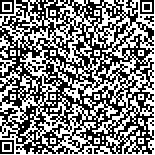|
| 引用本文: | 张守庆,王宝杰,姜 珊,蒋克勇,刘 梅,王 雷.重组抗菌肽海藻酸钠微囊制备与体外释放特征研究[J].海洋科学,2012,36(4):1-6. |
| |
|
| |
|
|
| 本文已被:浏览 3001次 下载 5006次 |

码上扫一扫! |
|
|
| 重组抗菌肽海藻酸钠微囊制备与体外释放特征研究 |
|
张守庆1,2, 王宝杰1, 姜 珊1,2, 蒋克勇1, 刘 梅1, 王 雷1
|
|
1.中国科学院 海洋研究所;2.中国科学院 研究生院
|
|
| 摘要: |
| 对重组表达的海洋生物抗菌肽对虾素3-2 进行亲和层析纯化, 以海藻酸钠为壁材, 采用凝聚法制备了重组抗菌肽海藻酸钠微囊, 以微囊的形态和包封率为指标优化制备工艺, 对制备的微囊进行体外释放特征的初步研究。结果显示, 在氯化钙浓度为1.5%, 海藻酸钠浓度为2.0%时, 制备的微囊为完整的球形, 冷冻干燥后的直径约为1.1 mm, 包封率为83.87%。微囊在模拟胃液(pH 2.0)中2 h 左右释放量趋于稳定, 释放量低于14%; 微囊在模拟肠液(pH 7.8)中不断释放, 5 h 时释放量达98%, 表明微囊具有良好的肠溶性而可以抵抗胃液的破坏, 可以用作重组抗菌肽缓释/控释制剂, 为抗菌肽在水产病害防治过程的口服给药提供实验基础。 |
| 关键词: 重组抗菌肽 海藻酸钠 微囊 包封率 体外释放 口服给药 |
| DOI: |
| 分类号: |
| 基金项目:国家高技术研究发展计划项目(2006AA100311) |
|
| Preparation and in vitro releasing characteristics of recombinant antimicrobial peptides sodium alginate microcapsules |
|
|
| Abstract: |
| In this paper, the recombinant antimicrobial peptides (penaeidin 3-2) were purified with affinity chromatography, and recombinant antimicrobial peptides sodium alginate microcapsules were prepared by using coacervation technology. The morphology and encapsulation rate were introduced as indexes of microcapsules formulation to optimize the preparation technology. The in vitro releasing characteristics of the optimal microcapsules was investigated and the results showed that these ball-shaped microcapsules with a diameter of 1.1mm and an encapsulation rate of 83.87% were prepared with 1.5% calcium chloride and 2.0% sodium alginate. The releasing rate of recombinant antimicrobial peptides after standing for 2 h in simulated gastric fluid (pH 2.0) was less than 14%. In contrast, after standing in simulated intestinal fluid (pH 7.8) for 5 h, the releasing rate of recombinant antimicrobial peptides reached 98%. These data suggested that the intestinal-lysis microcapsules have strong resistance to gastric fluid and can be used as a sustained-release and controlled-release reagent, providing the experimental basis for oral drug delivery system in aquaculture. |
| Key words: recombinant antimicrobial peptides sodium alginate microcapsules encapsulation rate in vitro release oral drug delivery system |
|
|
|
|
|
|
